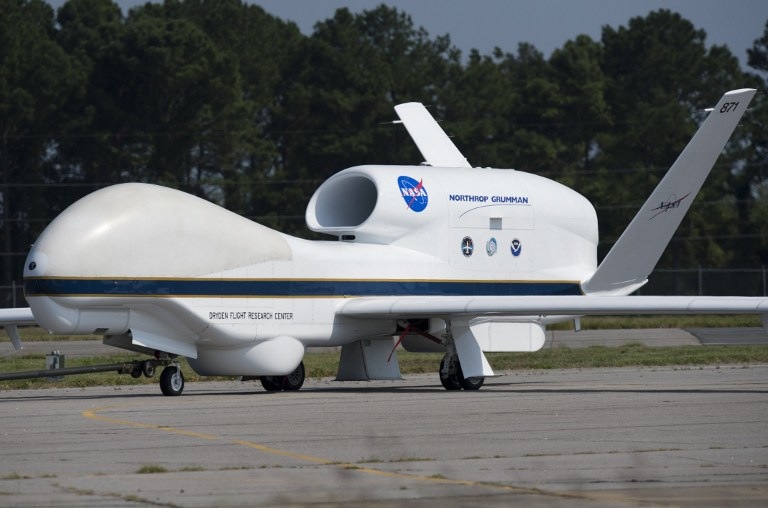Image: NASA
(Cyberwar.news) The National Aeronautics and Space Administration is brushing aside reports that one of its drones was hacked into by the “Anonsec” hacking collective, adding that about 250 GB of data the group said it swiped following a lengthy compromise of the NASA network was information already in the public domain.
As reported by InHomelandSecurity, the hacking collective took credit last week for breaching one of two Global Hawk drones operated by NASA. The collective posted on Pastebin data that included some 150GB of drone logs, names, email addresses and numbers for a little more than 2,400 staff. Now, the data is being hosted on a number of servers.
In addition, Anonsec claimed that it took “semi-partial control” of the drone as it flew over the Pacific Ocean; NASA uses its drones for long-duration data collection.
Officials for the space agency, however, disagreed with Anonsec’s claims.
“Control of our Global Hawk aircraft was not compromised. NASA has no evidence to indicate the alleged hacked data are anything other than already publicly available data,” NASA said in a statement to Forbes, according to InHomelandSecurity. “NASA takes cybersecurity very seriously and will continue to fully investigate all of these allegations.”
The agency puts out a lot of freely available information that hackers might claim was actually stolen from internal systems. But NASA’s “Open Data” web sites offer anyone some 30,000 datasets if they are interested in downloading them.
InHomelandSecurity reported further:
One of those who claimed responsibility for the attack, and whose PGP key and associated email were linked in the data dump, told me over Jabber the group initially bought access to the NASA network from a Chinese group, paying in Bitcoin in 2013. For the next two years, they pivoted around the network exploiting various systems known to be vulnerable, according to @_d3f4ult, the handle associated with the admin of Anonsec.
“They have many [Windows XP] and unpatched Ubuntu servers,” the admins said.
As to why the space agency was chosen, the admin said it was “for the thrill of hacking NASA.”
“We initially bought access for fun because we wanted to look around NASA systems,” they added. “Then once we propogated [sic] through the network we eventually stumbled upon a couple Flight Research Centers.”
While there is no evidence the NASA Global Hawk was hacked, a report last week by The Intercept said that the NSA and Britain’s spy agency, GCHQ, hacked into Israeli drones.
The report was based on information stolen by former NSA contractor Edward Snowden and provided to the investigative news site.
See also:


